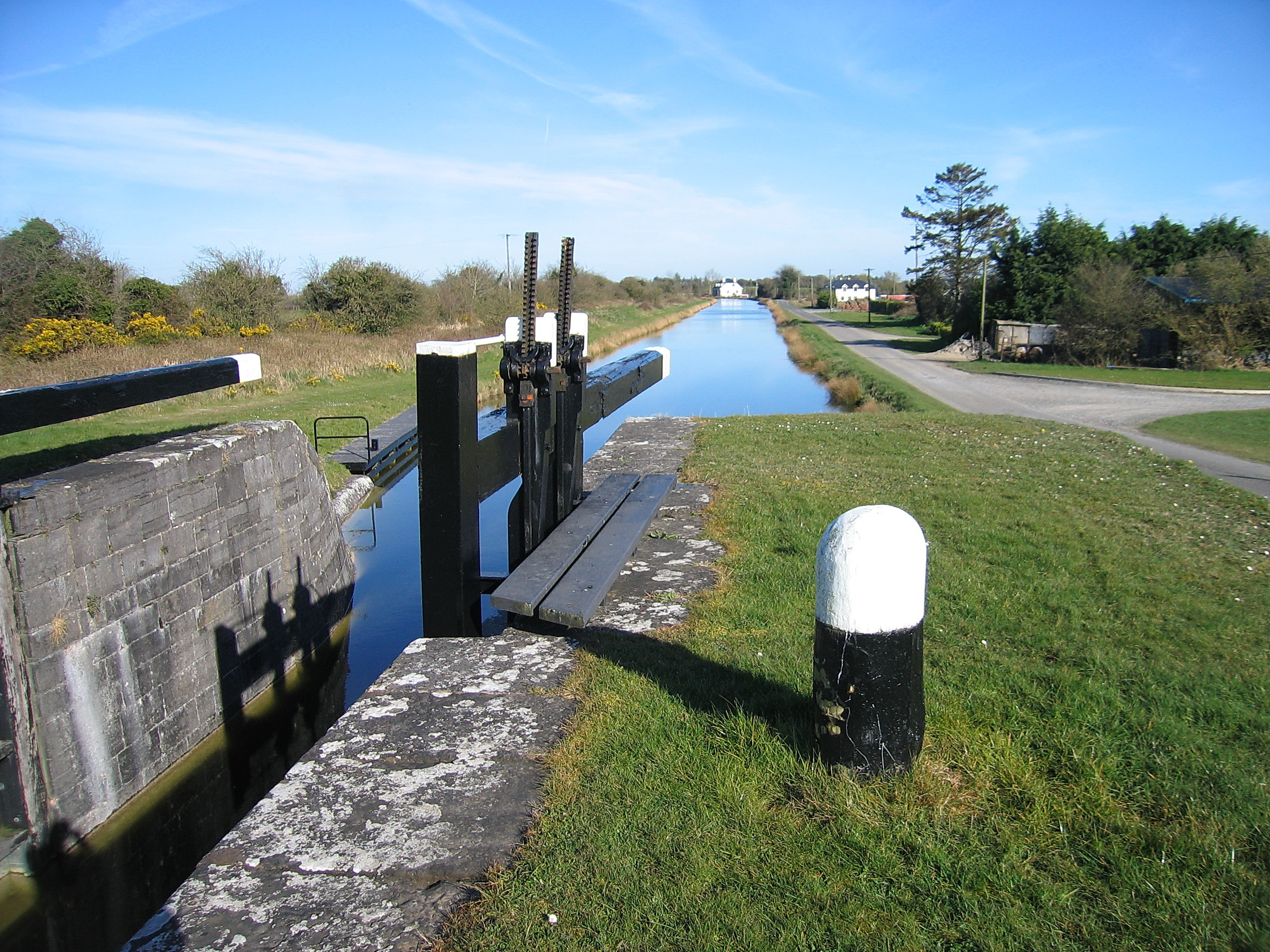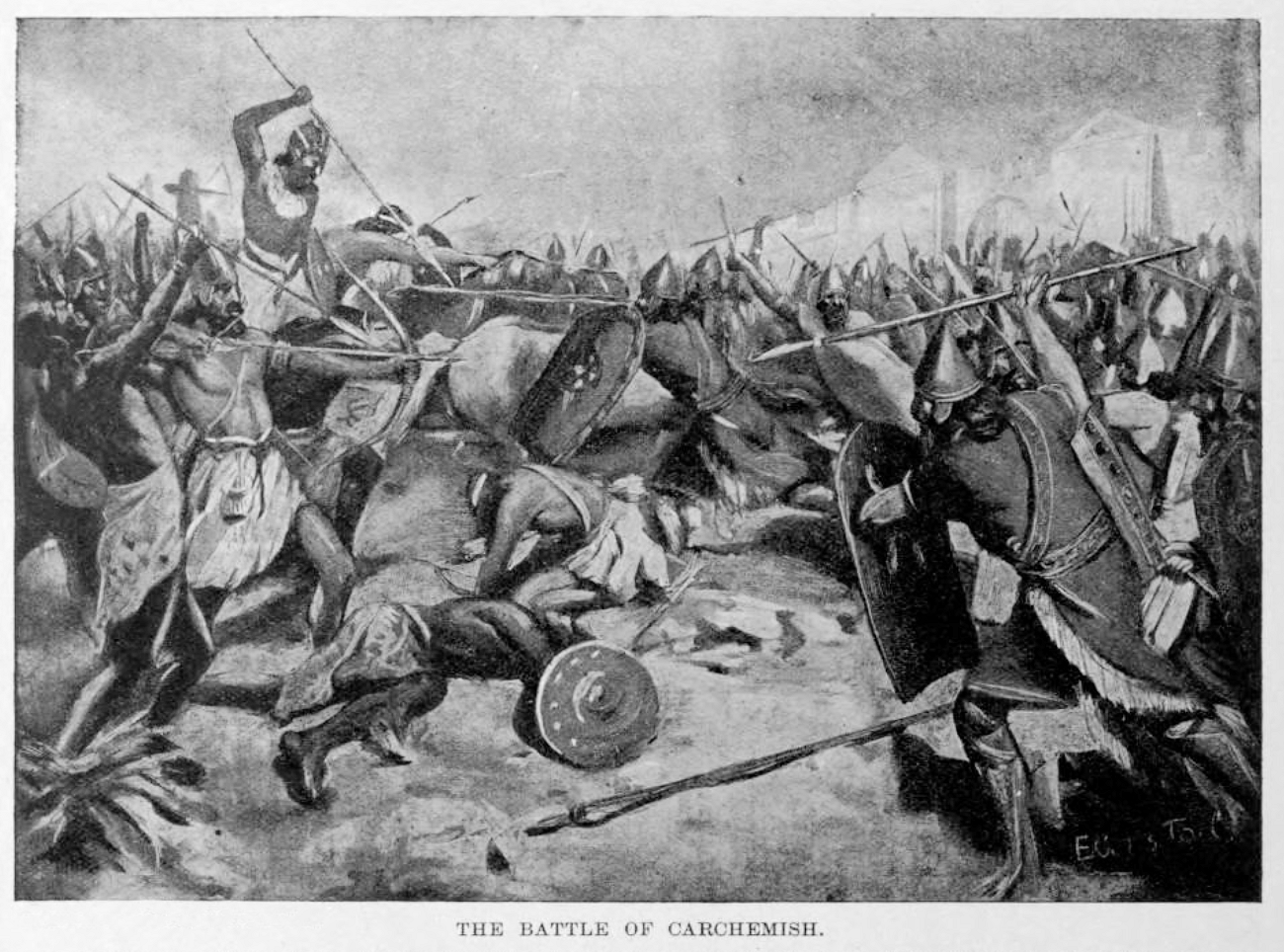|
Wadi Tumilat
Wadi Tumilat (Old Egyptian Tjeku/Tscheku/Tju/Tschu) is the dry river valley (wadi) to the east of the Nile Delta. In prehistory, it was a distributary of the Nile. It starts near the modern town of Zagazig and the ancient town of Bubastis and goes east to the area of modern Ismaïlia. In ancient times, this was a major communication artery for caravan trade between Egypt and points to the east. The Canal of the Pharaohs was built there. A little water still flows along the wadi. The current Sweet Water Canal also flows along the wadi. The Arabic name "Wadi Tumilat" is believed to reflect the existence in the area, in ancient times, of an important temple of the god Atum (Old Egyptian ''pr-itm'', 'House of Atum', changed over time into 'Tumilat', as well as into ' Pithom'). The old name of the valley is ''Wadi as-Sadir'' (), which is also " the land of Goshen" in the Arabic translation of the Pentateuch. Archaeology Wadi Tumilat has the ruins of several ancient settlement ... [...More Info...] [...Related Items...] OR: [Wikipedia] [Google] [Baidu] |
Canal Of The Pharaohs Map-en
Canals or artificial waterways are waterways or river engineering, engineered channel (geography), channels built for drainage management (e.g. flood control and irrigation) or for conveyancing water transport watercraft, vehicles (e.g. water taxi). They carry free, calm surface flow under atmospheric pressure, and can be thought of as artificial rivers. In most cases, a canal has a series of dams and lock (water transport), locks that create reservoirs of low speed current flow. These reservoirs are referred to as ''slack water levels'', often just called ''levels''. A canal can be called a navigation canal when it parallels a natural river and shares part of the latter's discharge (hydrology), discharges and drainage basin, and leverages its resources by building dams and locks to increase and lengthen its stretches of slack water levels while staying in its valley. A canal can cut across a drainage divide atop a ridge, generally requiring an external water source abo ... [...More Info...] [...Related Items...] OR: [Wikipedia] [Google] [Baidu] |
Prehistoric Egypt
Prehistoric Egypt and Predynastic Egypt was the period of time starting at the first human settlement and ending at the First Dynasty of Egypt around 3100 BC. At the end of prehistory, "Predynastic Egypt" is traditionally defined as the period from the final part of the Neolithic period beginning c. 6210 BC to the end of the Naqada III period c. 3000 BC. The dates of the Predynastic period were first defined before widespread archaeological excavation of Egypt took place, and recent finds indicating a very gradual Predynastic development have led to controversy over when exactly the Predynastic period ended. Thus, various terms such as "Protodynastic Period of Egypt, Protodynastic period", "Zero Dynasty" or "Dynasty 0" are used to name the part of the period which might be characterized as Predynastic by some and Early Dynastic by others. The Predynastic period is generally divided into cultural eras, each named after the place where a certain type of Egyptian settlement was fir ... [...More Info...] [...Related Items...] OR: [Wikipedia] [Google] [Baidu] |
Canal
Canals or artificial waterways are waterways or engineered channels built for drainage management (e.g. flood control and irrigation) or for conveyancing water transport vehicles (e.g. water taxi). They carry free, calm surface flow under atmospheric pressure, and can be thought of as artificial rivers. In most cases, a canal has a series of dams and locks that create reservoirs of low speed current flow. These reservoirs are referred to as ''slack water levels'', often just called ''levels''. A canal can be called a navigation canal when it parallels a natural river and shares part of the latter's discharges and drainage basin, and leverages its resources by building dams and locks to increase and lengthen its stretches of slack water levels while staying in its valley. A canal can cut across a drainage divide atop a ridge, generally requiring an external water source above the highest elevation. The best-known example of such a canal is the Panama Can ... [...More Info...] [...Related Items...] OR: [Wikipedia] [Google] [Baidu] |
Necho II
Necho II (sometimes Nekau, Neku, Nechoh, or Nikuu; Greek: Νεκώς Β'; ) of Egypt was a king of the 26th Dynasty (610–595 BC), which ruled from Sais. Necho undertook a number of construction projects across his kingdom. In his reign, according to the Greek historian Herodotus, Necho II sent out an expedition of Phoenicians, which in three years sailed from the Red Sea around Africa to the Strait of Gibraltar and back to Egypt. His son, Psammetichus II, upon succession may have removed Necho's name from monuments. Necho played a significant role in the histories of the Neo-Assyrian Empire, the Neo-Babylonian Empire and the Kingdom of Judah. Necho II is most likely the pharaoh Neco who was mentioned in 2 Kings, 2 Chronicles, and Jeremiah of the Bible. The aim of the second of Necho's campaigns was Asiatic conquest, to contain the westward advance of the Neo-Babylonian Empire, and cut off its trade route across the Euphrates. However, the Egyptians were defeated by the unexp ... [...More Info...] [...Related Items...] OR: [Wikipedia] [Google] [Baidu] |
Kathryn A
Kathryn is a feminine given name and comes from the Greek meaning for 'pure'. It is a variant of Katherine. It may refer to: In television and film: * Kathryn Beaumont (born 1938), English voice actress and school teacher best known for her Disney animation film works * Kathryn Bernardo (born 1996), Filipina actress and recording artist * Kathryn Bigelow (born 1951), American film director, first woman to win the Academy Award, BAFTA, and DGA award for Best Director * Kathryn Busby, American television and film executive * Kathryn Cressida also known as "Kat" Cressida (born 1968), American voice actress * Kathryn Crosby (1933 – 2024), American actress and singer who performed her most memorable roles under her birth-name Kathryn Grant * Kathryn Drysdale (born 1981), English actress * Kathryn Eames (1908 – 2004), American screen, stage, and television actress * Kathryn Erbe (born 1966), American actress best known for her lead role as Detective Eames on ''Law & Order: Cri ... [...More Info...] [...Related Items...] OR: [Wikipedia] [Google] [Baidu] |
Tell El-Maskhuta
Pithom (; ; or , and ) was an ancient city of Egypt. References in the Hebrew Bible and ancient Greek and Roman sources exist for this city, but its exact location remains somewhat uncertain. Some scholars identified it as the later archaeological site of Tell el-Maskhuta (). Others identified it as the earlier archaeological site of Tell El Retabeh (). Etymology The English name comes from Hebrew which was taken from the Egyptian toponym ''pr-(j)tm'', "House of Atum". Atum's cult center was in Heliopolis.. Biblical Pithom Pithom is one of the cities which, according to the Book of Exodus , was built for the biblical Pharaoh of the oppression by the forced labour of the Israelites. The other city was Pi-Ramesses. The Septuagint adds a third, "''On'', which is Heliopolis." These cities are called by a term rendered in the Authorized Version "treasure cities" and in the Revised Version "store cities" (). The Septuagint renders it "strong r "fortified"cities." The same ... [...More Info...] [...Related Items...] OR: [Wikipedia] [Google] [Baidu] |
Saite Dynasty
The Twenty-sixth Dynasty of Egypt (notated Dynasty XXVI, alternatively 26th Dynasty or Dynasty 26) was the last native dynasty of ancient Egypt before the Persian conquest in 525 BC (although other brief periods of rule by Egyptians followed). The dynasty's reign (664–525 BC) is also called the Saite Period after the city of Sais, where its pharaohs had their capital, and marks the beginning of the Late Period of ancient Egypt.Aidan Dodson, Dyan Hilton. ''The Complete Royal Families of Ancient Egypt''. The American University in Cairo Press, London 2004 History This dynasty traced its origins to the Twenty-fourth Dynasty. Psamtik I was probably a descendant of Bakenranef. However, other sources describe him as of Libyan descent. Following the Neo-Assyrian conquest of Egypt during the reigns of Taharqa and Tantamani, and the subsequent collapse of the Napata-based Twenty-fifth Dynasty of Egypt, Psamtik I was recognized as sole king over all of Egypt. Psamtik formed a ... [...More Info...] [...Related Items...] OR: [Wikipedia] [Google] [Baidu] |
Tell El-Retabah
Tell may refer to: *Tell (archaeology), a type of archaeological site *Tell (name), a name used as a given name and a surname *Tell (poker), a subconscious behavior that can betray information to an observant opponent Arts, entertainment, and media * ''Tell'' (2012 film), a short psychological horror film by Ryan Connolly * ''Tell'' (2014 film), a crime thriller starring Katee Sackhoff, Jason Lee and Milo Ventimiglia * '' Tell Magazine'', a Nigerian newsweekly * " The Tell", an episode of ''NCIS'' * "The Tell" (''Teen Wolf''), a television episode * ''The Tell'', a photomural, part of the Laguna Canyon Project Places Middle East *Tel Aviv, Israel *Et-Tell, an archaeological site identified with Bethsaida *Tell, West Bank, a Palestinian village near Nablus *Ancient Tell, Beirut, Lebanon; the Canaanite pre-Phoenician era of Beirut and archaeological site United States *Tell, Texas, unincorporated community in the United States *Tell, Wisconsin, town in the United States *Tell ... [...More Info...] [...Related Items...] OR: [Wikipedia] [Google] [Baidu] |
New Kingdom Of Egypt
The New Kingdom, also called the Egyptian Empire, refers to ancient Egypt between the 16th century BC and the 11th century BC. This period of History of ancient Egypt, ancient Egyptian history covers the Eighteenth Dynasty of Egypt, Eighteenth, Nineteenth Dynasty of Egypt, Nineteenth, and Twentieth Dynasty of Egypt, Twentieth dynasties. Through radiocarbon dating, the establishment of the New Kingdom has been placed between 1570 and 1544 BC. The New Kingdom followed the Second Intermediate Period of Egypt, Second Intermediate Period and was succeeded by the Third Intermediate Period of Egypt, Third Intermediate Period. It was the most prosperous time for the Egyptians#History, Egyptian people and marked the peak of Egypt's power. In 1845, the concept of a "New Kingdom" as Periodization of ancient Egypt, one of three "golden ages" was coined by German scholar Christian Charles Josias von Bunsen; the original definition would evolve significantly throughout the 19th and 20th ... [...More Info...] [...Related Items...] OR: [Wikipedia] [Google] [Baidu] |
Tell El-Kuʿ
Tell el-Kuʿ (Arabic تل الكوع), also written as Tell el-Ku'a and Tell el-Koa, is an archaeological site in Egypt, located in the eastern Nile Delta at the Wadi Tumilat. The excavated areas of the site were used at different times as a cemetery and a settlement. The finds from the site date mostly from the Second Intermediate Period, encompassing the period from the late Middle Kingdom to the early New Kingdom. The site exhibits burial practices of non-Egyptian origin, including donkey burials, attested at other eastern Delta sites during the period (such as Tell el-Dab'a, Tell Basta, Tell el-Yahudiya). The settlement architecture is comparable to that of the nearby site Tell el-Maskhuta. Along with other sites at the Wadi Tumilat, Tell el-Kuʿ is considered to be involved in trade contacts between Second Intermediate Period Egypt and the Levant. The site was excavated in 1987 by Ibrahim M. Soleman, later by Nabil el-Sherif, M. Salem el-Hangury, Nasr Allah el-Kelany, and ... [...More Info...] [...Related Items...] OR: [Wikipedia] [Google] [Baidu] |
Tell El-Shaqafiya
Tell may refer to: *Tell (archaeology), a type of archaeological site *Tell (name), a name used as a given name and a surname *Tell (poker), a subconscious behavior that can betray information to an observant opponent Arts, entertainment, and media * ''Tell'' (2012 film), a short psychological horror film by Ryan Connolly * ''Tell'' (2014 film), a crime thriller starring Katee Sackhoff, Jason Lee and Milo Ventimiglia * '' Tell Magazine'', a Nigerian newsweekly * " The Tell", an episode of ''NCIS'' * "The Tell" (''Teen Wolf''), a television episode * ''The Tell'', a photomural, part of the Laguna Canyon Project Places Middle East *Tel Aviv, Israel *Et-Tell, an archaeological site identified with Bethsaida *Tell, West Bank, a Palestinian village near Nablus *Ancient Tell, Beirut, Lebanon; the Canaanite pre-Phoenician era of Beirut and archaeological site United States *Tell, Texas, unincorporated community in the United States *Tell, Wisconsin, town in the United States *Tell ... [...More Info...] [...Related Items...] OR: [Wikipedia] [Google] [Baidu] |
Tell El-Maschuta
Tell el-Maschuta (Arabic تل المسخوطة Tell el-Mashūta, ) - either the Egyptian language, ancient Egyptian Per Tem/Pi-Tem or Tjeku - is located in the Wadi Tumilat region in the eastern Nile Delta about 16 kilometers west of Ismailia and about 18 kilometers east of Tell er-Retaba. The use of the site was subject to constant change. Originally founded in the 16th century BC as a settlement of around two to three hectares, Tell el-Maschuta was re-founded at the end of the 7th century BC as a trading center and place of worship of the deity Atum (Tem), which was associated with the naming of ''Per Tem (Atum)'' ''in'' ''Tjeku'' under the ancient Egyptian pharaoh Necho II. Herodotus mentioned the "Arab city of Canal of the Pharaohs, Patumos" located in this region in connection with the canal construction begun by Necho II. In Hellenistic period, Hellenistic times, ''Per Tem'' probably bore the name ''Heroonpolis''; however, this is not certain. The name ''Ero'', which origina ... [...More Info...] [...Related Items...] OR: [Wikipedia] [Google] [Baidu] |




